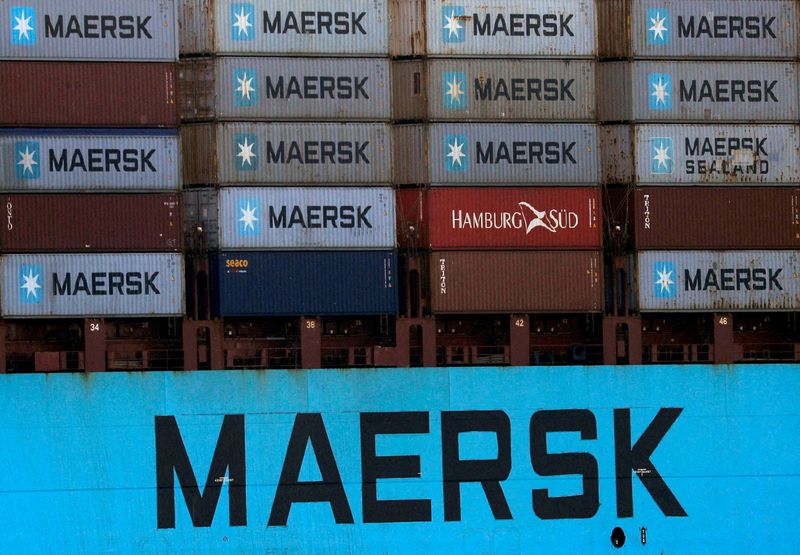COPENHAGEN (Reuters) -Maersk has found possible buyers for its stake in Global Ports Investments, which operates ports in Russia as it withdraws from the country following a final cargo shipment this week, the Danish shipping group said on Wednesday.
Maersk put its 30.75% share of Global Ports up for sale as it decided to quit Russia because of its invasion of Ukraine.
It said talks were taking place with several potential buyers without giving names and that it did not expect to have to give the stake away.
Maersk bought its stake in 2012 in the company that operates six container terminals in Russia and two in Finland, and whose other shareholders are Russian state nuclear company Rosatom and Russian businessman Sergey Shiskarev.
“We will not return until we think that Russia again plays a good and constructive role in the world,” Chief Executive Soren Skou told a press briefing.
Maersk carried out its last cargo operation in a Russian port on Monday. It booked impairment losses and writedowns of $718 million because of Russia’s invasion of Ukraine, including 20,000 containers stranded in Russia and writing off Global Ports.
Maersk, often seen as a barometer for global trade, said a surge in consumer demand, pandemic-related congestion in major ports and an airspace closure following Russia’s invasion of Ukraine that began on Feb. 24 have slowed container shipments and prompted a spike in freight rates.
New COVID-19 lockdown measures in China have added pressure on the already strained freight market.
“Further challenges arise from the ongoing COVID-19 lockdowns in China, and while the impact in the first quarter is limited, it may worsen the congestion environment in coming quarters as the situation develops,” the company said in its first-quarter earnings statement.
It confirmed upbeat first-quarter numbers announced last week as well as its forecast that growth in global container demand will slow this year to between minus 1% and plus 1%, compared to its previous expectation of 2%-4% growth.
One of the world’s biggest container shippers with a market share of around 17%, Maersk also said that while consumers had spent more on goods during the pandemic rather than services such as restaurants and travel, that was changing.
“A reduced impact from the COVID-19 pandemic should support the global economy, but the composition of spending is likely to rebalance towards services, and sharply rising prices for some goods may lead consumers to adjust their spending plans,” the company said.
(Reporting by Jacob Gronholt-Pedersen; editing by Jason Neely and Barbara Lewis)

























